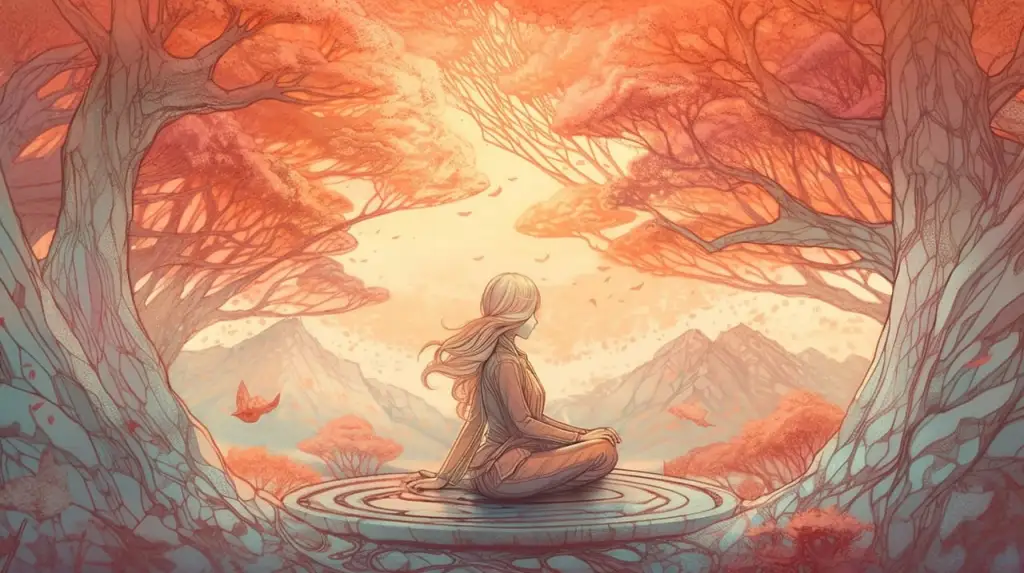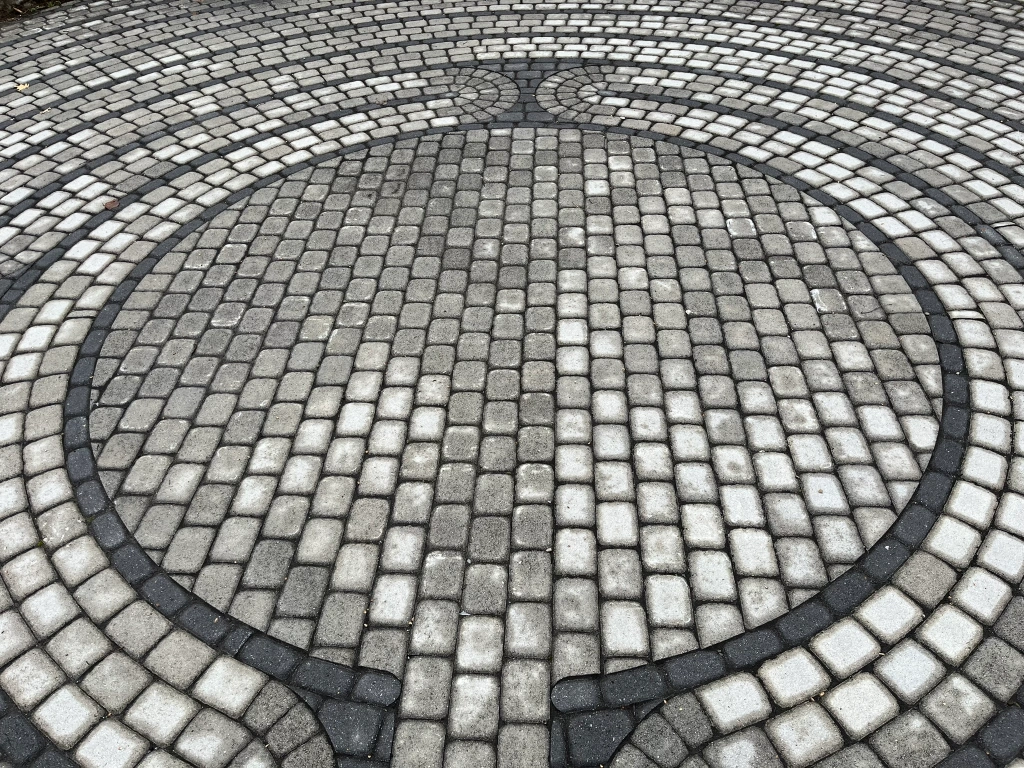In 1972, a record album and illustrated book were released entitled Free to Be…You and Me. Two years later, a special based on the album was aired on ABC. Free to Be…You and Me was groundbreaking. Starring many famous actors and singers of the time, including Roberta Flack, Alan Alda, Mel Brooks, and Marlo Thomas, it was a series of songs and vignettes aimed at children, to teach them that they were free to be who they really were, despite the gender stereotypes around them. Football player Rosey Grier sang about how “It’s Alright to Cry,” even if you’re a boy. Carol Channing recited, “Your mommy hates housework. Your daddy hates housework. And I hate housework too. And when you grow up, so will you.” The overall message of the entire piece was something like “boys and girls are equal, and can be whoever they are, no matter what others say.”
I was born just after this, and I can’t remember if I heard the album or saw a rerun of the special as a child. I know we sang at least one of the songs from the album at the summer camp I attended. But whether I heard the album or not, I grew up immersed in its message. My parents definitely had its message in mind as they raised my sister and me. I vividly remember my parents telling me that I could choose to do whatever I wanted with my life, and they would support me. (I don’t recall that they were referring specifically to gender stereotypes when they said that, but I guess that must have been part of it.) As a late-cohort Gen-Xer, born in 1975, I think of myself as part of the “Free to Be generation.” I have believed since childhood that dividing things into “boy stuff” and “girl stuff” is archaic and wrong. I have believed since childhood that there is no difference between men and women relevant to most situations. I mean, sure there are some biological differences, but there are also biological differences between blue-eyed and brown-eyed people. There are vanishingly few situations in life where eye color is relevant. And I grew up believing that’s the same about gender.
I think this is why I found it very easy in college, when I was first exposed to openly gay people, to accept them without any problem. I mean, if men and women are equal, and deserve exactly the same rights, privileges, and responsibilities as each other, then why can’t men fall in love with men; why can’t women fall in love with women? What difference does it make? To me, it made no difference, and still doesn’t.
As I entered adulthood, my understanding of gender was pretty well-formed, and went something like this: There are men and there are women, but in just about every situation, that doesn’t matter at all. I started wondering why gender seemed like such a primary way to divide people up. I noticed that pronouns in English specifically call out gender – not race, religion, hair color, age, status, only gender. “He” and “she” are each 100% gendered. I started wondering why that was so important. But even as I questioned its importance, the existence of a binary gender was something I never questioned. I knew there were exceptions, but I always thought that’s what they were: rare exceptions. Growing up, I knew there were people who “cross-dressed,” called “transvestites.” I knew about something called “sex-change operations.” (I remember hearing in the 80’s that people went to Sweden for such things. Was that true???) I had heard that there was a rare condition where someone could be born with ambiguous sex organs, and the parents and doctors would have to make a decision whether to raise the child as a girl or a boy, and whether to do some sort of surgery. But all that seemed to me like stuff on the fringe, an exceedingly rare exception to the rule of male-female. I just had no experience or knowledge that there even was another way to view it.
But that has changed. It seems like in the past decade or two, there has been a seismic shift in how gender is understood. Among many people, especially young people, gender is no longer considered something that’s binary. It’s no longer male/female. It’s a spectrum, a continuum, an open-ended rather than multiple choice question. I’m reminded of something I heard about many years ago, the “Kinsey Scale,” which is a range from 0-6 that describes a person’s sexual orientation. Those who rate 0 are “exclusively heterosexual,” those who rate 6 are “exclusively homosexual.” Threes are “equally homosexual and heterosexual,” and the remaining numbers fit in as you’d expect. This scale was created in 1948(!) by Albert Kinsey. Maybe the scale of gender is something like that.
But I might be missing the boat here: after all, sexual orientation isn’t the same as gender. Sexual orientation is about whom you’re attracted to; gender is about who you are. Here’s an example of how they’re different:
I can imagine myself having a different sexual orientation. I’m a zero or one on the Kinsey scale – my attraction has always been exclusively to women. But I can imagine being attracted to men. I can imagine myself as a gay person. I’m not saying that I could choose tomorrow to be gay. I don’t think I could change my own feelings that way. I can’t remember ever choosing to be straight. All I’m saying here is that I could imagine being gay, and still being pretty much the same me. I don’t find my sexual orientation to be particularly integral to my identity.
But I can’t imagine being a woman. Or what it would mean to be “asexual” or “genderqueer” or any of the other gender identities that are now claimed by people. I simply can’t imagine it. I mean, I can kind of put myself in a woman’s shoes, and imagine what it’s like to be treated as less than a man. But I can’t wrap my mind around what it would actually be like to be of another gender.
I can imagine having a different sexual orientation, but not a different gender. Which means that, to me, gender is a firm part of my identity in a way that sexual orientation isn’t.
And that’s precisely what’s changed with the current generation of teenagers and young adults.
Gender is no longer a firm part of their identity. And I don’t understand that! I just can’t seem to wrap my brain around how someone who was raised as a girl could somehow know that on the inside, they’re really male. I just can’t seem to grasp how someone could perceive themselves as “genderfluid” or “genderqueer.” I can’t fathom what it means to crack open the gender binary, and suddenly have a plethora of words and descriptors to claim. How does that even work? It’s such a different landscape than it was forty years ago.
But – and this is very important – just because I don’t understand it doesn’t mean I can’t accept it. And I can embrace the message of Free to Be…You and Me to help me do so. Because behind the album’s message of gender parity, its deepest message was this: Be who you are. Accept people for who they are. I can try to do that. I have done that with my own child, who came out to my wife and me two years ago as genderfluid, and asked us to use “they/them” pronouns and refer to them by a new name. Has that been easy? Not always. Have I wondered if it’s just a phase or a fad? Sure. But I decided really early on that it isn’t my job as a parent to understand my children – it’s my job to love them. I don’t care if it’s a phase or not – I would rather be a parent who naively followed my child through a phase than run the risk of rejecting a part of who my child is.
And you know what? Maybe our job is the same for people in general, not just our children. Maybe it’s not my job to understand people – it’s my job as a child of God to love them. It’s not always easy to love, but then it never was. And nobody ever promised it would be.
But with all that I don’t understand, there’s one thing I think I do. Anecdotal evidence from my friends and peers indicates to me that there are a lot of adolescents in Generation Z who identify their gender as something nonbinary. It isn’t rare. I think I understand why this is – and I don’t think it’s a fad or peer pressure. Here’s what I think:
When I was a teenager, I spent an awful lot of my energy trying to figure out who I was. Trying to understand who I was, why I was here, what I wanted to do with my life, how I wanted to present myself. In a nutshell, I was trying to figure out my identity. Some of the things I tried out and explored stuck with me, and some didn’t. I think most adolescents in any generation go through this – I think that’s an important part of that phase of life.
But here’s what’s changed since my adolescence: gender identity is now on the table. Now when kids go through their identity-questioning period, they have the language to question that as well. I wonder how many of my peers would have questioned their gender identity if we’d had the language for it back then. I wonder if I would have. So it’s no wonder to me that loads of teenagers are questioning their gender, exploring, trying things on for size. Who knows how many of them will still identify as nonbinary in ten years? I’m not saying that nonbinary gender identification is a phase. What I’m saying is that exploring and questioning one’s gender is a phase. Just like we all go through a phase of exploring and questioning our identity. Today’s teens just have more on the table than we used to.
This has been an exceedingly long post, which took me several weeks to fully write. I think I’ll end it where I began: I’m a member of the “Free to Be” generation. Now in my midlife, I’ve seen the menu of things it’s “free” to be expanded. It’s not just gender stereotypes that need to be broken now, but gender itself. And today’s kids need to know that they’re still free to be who they are. And this paraphrase of Carol Channing’s words are forever true: “Cisgender people hate housework, transgender people hate housework, genderfluid people hate housework, and I hate housework too. And one day, so will you.” And in the end, maybe that’s the thing that keeps us all together, the thing that hasn’t changed in forty years. Our God-given hatred of housework.
Image by Chris Martin from Pixabay




Leave a comment